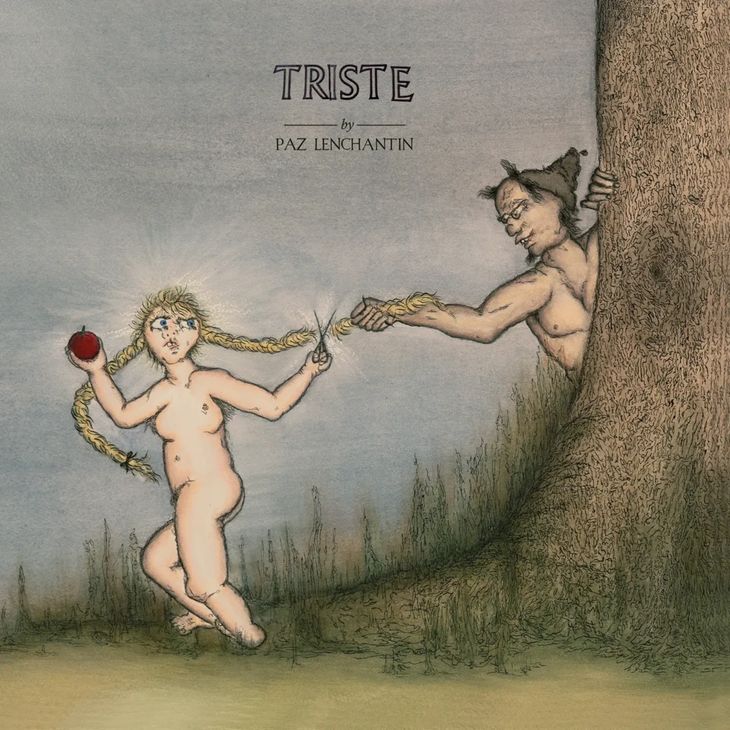Whatever you were expecting from a Paz Lenchantin solo album, you won’t be prepared for what you hear when you press play. The bassist’s name became familiar thanks to her tenure in A Perfect Circle, alongside Maynard James Keenan, and Zwan, alongside Billy Corgan, — and, let’s face it, because her name of Argentine descent is quite unusual. With Triste (that’s Spanish for “sad,” you heathens!) provides ample evidence on her debut album supporting the commonly held belief that bassists are the most enigmatic members of rock bands.
For starters, the record sounds nothing like the other projects listed on her resume. Lenchantin’s voice rarely rises above a throaty whisper, suggesting that she is more bashful than brazen when taking to a microphone. That side of her personality wasn’t as noticeable in the aforementioned larger-than-life projects with which she filled stadiums for their live performances, but it does remind us that she also had tenure in Silver Jews, where she rubbed elbows with self-deprecating bandmates Stephen Malkmus and Bob Nastanovich. She also took the bass baton from Kim Deal in the Pixies for many years, but in order to figure out how that experience impacted her career, we’d probably need to tap a professional psychologist.
Especially in light of the Corgan connection, one might assume that Lenchantin’s first foray into the limelight would awaken her ego, or even transform her into a commanding, cult-leader-esque. The obvious parallel is Melissa Auf der Maur, another Corgan collaborator who publicly stated with no shame that his rabid fanbase didn’t resemble a cult but that “social-justice warriors” did. Fortunately, his misguided political beliefs don’t appear to have rubbed off on either of his former bandmates. (Bonus trivia: Lenchantin and Auf der Maur also played together in a short-lived band called the Chelsea.)
But unfortunately, Auf der Maur’s attempts to kickstart her solo career failed spectacularly with the albums she released in 2004 and 2010. This writer witnessed her crash and burn through an afternoon set at a festival where she showed up dressed like Ozzy Osbourne from his ’70s era — cape and all — and it simply Did. Not. Work.
Who knows if Lenchantin considered Auf der Maur’s failure to launch and learned a lesson or two from it. And she was wise to do so, because Triste is a record created by her but has much more to do with a message she conveys in both English and Spanish: devoting one’s self to religion can lead to a life of sadness (hence “triste”) The methods and tactics she uses to convince her listeners of her clearly deeply held conviction is by keeping her voice low, never condescending or mocking those who might — or, let’s be frank, would — disagree, and minimizing the instrumentation that serves as witnesses to her defense throughout the record.
Meanwhile, she pleads against religious intrusion into her personal life by begging “No Puedo Más” on the second album track, “Sin Dios”.
And while this record should’ve come out many months if not years ago, the timing has turned out to be rather fortuitous because Argentina is in the news after Trump apparently and unilaterally doled out $40 billion to that country’s government for reasons too extensive to break down here.
All in all, the word “modest” is perhaps the best word to be tacked onto Lenchantin’s first solo record, from the scale of it to the time she took writing and recording it to roping in supportive musicians for enhancing the effort. It’s also a great place to start because fans of Lenchantin and the myriad projects of which she’s been a mirror will be clamoring for a full-length as soon as the final, sad note is heard on the appropriately named song “Triste”.











